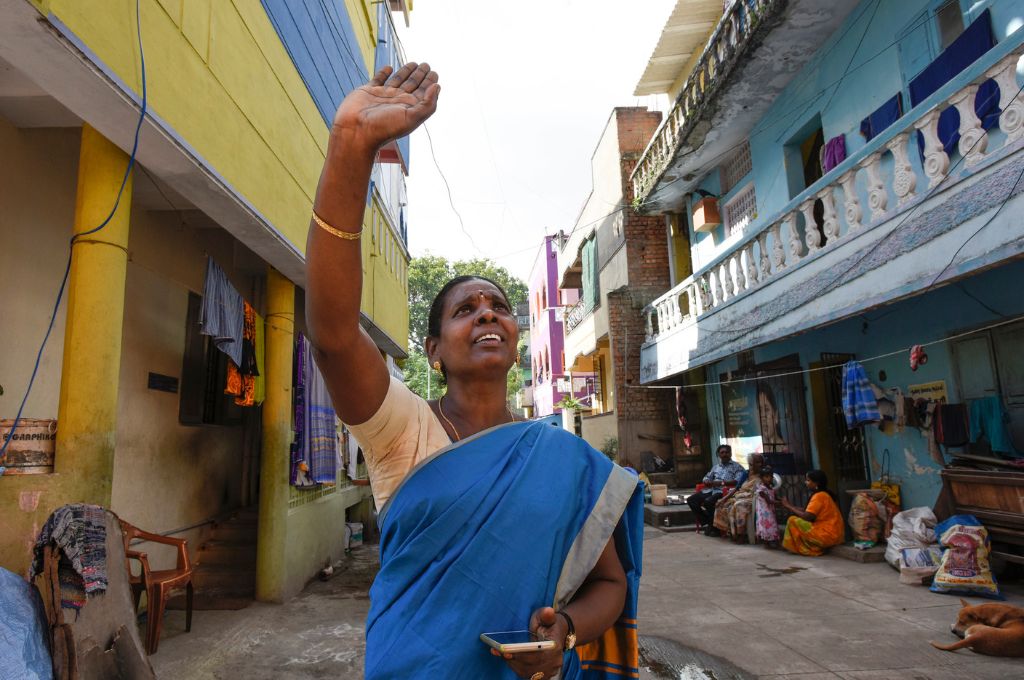When 70 Indian start-ups laid off 17,000 employees (including 2,500 people at EdTech firm Byju’s) in the first six months of 2023, much newsprint and digital ink was devoted to analysing what it meant for the companies, their employees, the start-up ecosystem and the economy.
Compare this to the more than 100 nonprofits that have lost their FCRA in a seven-month period.1 Approximately 4,000 people at CARE, one of the larger global nonprofits operating in India, were reportedly rendered unemployed versus the 2,500 people at Byju’s.
And yet, there is no conversation on what this means for the economy—nonprofits contribute to 2 percent of the country’s GDP; on the viability of the nonprofits themselves; on the debilitating impact on their staff, most of whom are employed in the smaller towns and villages; and, above all, on the millions of vulnerable families that are now deprived of the critical services these organisations provide them.
The invisible sector
According to a 2014 report by the Ministry of Statistics and Programme Implementation (MoSPI), civil society organisations (CSOs) account for 27 lakh jobs and 34 lakh full-time volunteers, generating employment figures higher than that of the public sector. In a survey of 515 nonprofits conducted by CSO Coalition@75 and anchored by GuideStar India, 47 percent reported that they are the biggest source of formal employment in more than half of the local geographies that they work in.
Moreover, nonprofits are the connectors between the state and the people. More than 50 percent of the organisations work locally, in rural areas and in aspirational districts. They work on education, health and nutrition, livelihoods, water and sanitation, climate change, agriculture, women and child rights, disability, and citizen engagement—covering every aspect of a citizen’s life. They create local livelihoods, develop skills, promote social mobility, and engage local businesses. Half of the nonprofits that were surveyed work with government bodies (schools, panchayats, municipalities, anganwadis, and primary health centres) and self-help groups. Strengthening them, in fact, accelerates local area development.
Nonprofit jobs are not like those in the business and government sectors. As a leader of a nonprofit said, a nonprofit worker’s role is to bring about social change; it’s not just a job. “When jobs are lost, so are the opportunities to improve the lives of the marginalised and vulnerable populations,” he adds.
The impact on communities is immediate and substantial
Different kinds of work have come to a halt due to the FCRA cancellations. Efforts around child protection, immunisation, prevention of neonatal deaths, provision of health and nutrition facilities in schools and anganwadis, creating material for teacher training for early childhood learning, engaging with parents on their children’s schooling, providing skilling and livelihood opportunities for the young, enabling access to government entitlements—all of these have stopped in the regions where these nonprofits were operating. An estimated 4,000 to 8 lakh people per organisation no longer have access to the services provided by these nonprofits whose FCRA licences have been cancelled.2
The belief in nonprofits as enablers is shaken.
Beyond the cessation of services, the system of trust—which the frontline staff at the nonprofits have spent years developing with the community—breaks down; the belief in nonprofits as enablers is shaken.
According to the CEO at a large nonprofit, “It’s not about just one organisation’s work coming to a standstill; people feel let down by us. Why would they believe us the next time when we say that we will fulfill a certain commitment over a certain period of time?” he asks. This loss of trust is hard to reverse, he adds.
The invisible workforce
While the communities are left at a loose end, the frontline workers—the people who are employees of these nonprofits—and their families are severely impacted as well.
Many of the frontline staff who have lost their jobs are typically graduates or, in some cases, people with post graduate degrees. They are anchored in their community, and most of them have chosen to stay in that village or town. Their livelihood and strength is in and around the local ecosystem. According to the nonprofit CEO, these individuals are the first-mile connectors and integrators there; they are deeply rooted in and valuable to the community. “This also means that these field staff need nonprofits to keep them there, and we nonprofits need them for the work we do with communities,” he says.
He adds that there are limited employment opportunities in the areas where most of the rural community mobilisers live. “If the fruits of development such as industry and other livelihood opportunities had reached these areas, these individuals would have had multiple employment options. What we’ve seen over the years is that development work is one of the last choices for most people—they would prefer a government job or some private enterprise because there is better compensation, continuity, and certainty of income.” This FCRA cancellation and sudden loss of jobs has reinforced the precarity of working for a nonprofit.

No jobs in the market
Seema Muskan is a 35-year-old, Patna-based researcher who used to work with a nonprofit. She has more than 15 years of experience in the fields of health, education, and nutrition. When the nonprofit she worked with lost its FCRA licence in March 2023, she lost her job, and with that her sense of identity and financial independence.
According to Seema, it’s not easy to find another job. “Everyone’s FCRA is at risk. The belief among all the other nonprofits is that they are next in line to lose their FCRA licences. The fear is so entrenched that they aren’t hiring either.”
Seema says there are probably some options with other large nonprofits in states such as Chhattisgarh and Jharkhand. But she needs to be in Patna because of her family; her husband, children, and in-laws are there. “I have two young kids, aged five and eight years. I can’t leave them behind to go work in another town or city.”
64 percent of the nonprofits surveyed said that their employees are the sole breadwinners in their respective families.
“When you have a job, you have an identity, a sense of self in society, you have independence, your own money, and you contribute to your kids’ education,” she says. Seema contributed to the repayment of their fairly large home loan, as well as their children’s education. Now she fears what this lack of income means for her family’s financial stability. “You can reduce your expenses significantly, you can cut down on many things, but the one thing you can’t do is stop your children’s education. And now that seems like a looming possibility,” she says.
Seema does however believe that her male colleagues have it worse. “Even if I don’t have a job, at least there is some money coming in because of my husband’s business. For many of my colleagues, it’s far worse because they are the primary breadwinners; their families depend on them.”
According to the GuideStar India survey, 64 percent of the nonprofits surveyed said that their employees are the sole breadwinners in their respective families.
Dinesh Kumar’s entire career has been in the social sector. With 18 years of experience, he has worked in education, on child protection and nutrition, and with Panchayati Raj institutions. At his previous nonprofit, his work entailed helping vulnerable populations access any of the 40–50 government schemes that they and their families were eligible for.
Dinesh says that few other organisations do the work that his nonprofit does, and there are limited opportunities for someone with his skills and knowledge. “My professional career has been in the social sector. I have worked for 18 years and built considerable skills working with communities, helping with data collection, managing large research surveys, and conducting training and facilitation. But if other nonprofits also stop hiring, where will we go, how will we survive?” he asks.
Too many people, too few jobs
For many of the frontline staff, applying for and getting a new job comes with its share of challenges. Dinesh says that even as he circulates his resume, he knows that the chances are low. Unemployment is already high across the country. In most cases, his resume doesn’t get shortlisted because of his specialised skills. Other nonprofits that might leverage his skills aren’t hiring, or if they are they have far too many applicants.
Moreover, for many, the process of application itself is hard. Mukesh Kumar was a district academic fellow with CARE before he lost his job in June 2023. Starting off at a low-paid position in a large education nonprofit almost 12 years ago, he has risen to be a district-level coordinator.
Mukesh has been speaking to his networks in the sector, scouring DevNet and LinkedIn for any open positions, and even googling jobs in his district. The problem is compounded by the lack of access to computers or laptops. “While technology might have advanced and is easily accessible now, I have no means to buy a computer. This means that when I get the test assignments that organisations give as part of their recruitment process, I have to either type the answers on my mobile phone (which is extremely hard to do) or write them down by hand, scan the document, and then e-mail it to them,” says Mukesh.
Dinesh adds that he would like to keep working in the social sector, but might not really have a choice. “Unlike the government and private sector, our salaries don’t allow for savings. I have enjoyed working in the social sector, building relationships with the community, and helping people get their entitlements and what is due to them. I want to continue working in this space and contribute to society, but now I have nothing,” he says.
Mukesh reiterates the deep trust and relationships he has built with the community. “We work closely with families to make sure they know what’s happening in the schools, and whether their children have access to quality education. We understand the gaps in the education system, and so we provide training for government staff as needed, facilitate parent–teacher interactions, help parents understand how their kids should be treated, and so on. People trust us because they know we are doing it for their benefit.”
Where can they go now?
Except for the big corporate foundations that implement programmes themselves, have large teams, and are well funded, most of the nonprofits cannot help because a) they are short of resources themselves and have no funds to spare, and b) they are afraid of losing their FCRA licences and what that will mean for their own employees and communities.
Dinesh adds that people have been advising him to start a business. “But businesses take five to 10 years to take off. I’m already 40 years old. I will be 50 by the time I get somewhere in business. And how will I manage in the meantime, with my kids growing up and the increasing expenses?” he says.
There is a high chance that people will look for work outside the sector.
For Mukesh, the situation is so dire that he has been working as a mechanic for the last couple of weeks. Like Seema and Dinesh, he has extensive skills in education, training and facilitation, relationship building, and communications, most of which feel redundant to him right now.
“My friends laugh at me,” he says. “But what option do I have? I’m 35 years old; I have a wife, three kids, and old parents to support. I used to get INR 21,500 in hand monthly. Given that I have had no job for a few months now and I’m the sole provider for the family, I have no money left at all. The future looks very dark.”
The executive director of a leading nonprofit, which works extensively with rural communities, says that with so many FCRA licences being cancelled and the resultant loss of jobs, there is a high chance that people will look for work outside the sector.
“I’m afraid companies are going to take undue advantage of these frontline workers’ financial distress and offer them roles like recovery agents for gold and other loans. The close relationships they have built with the communities are likely to be misused by these financial companies to recover money—a sharp contrast to the spirit of service that most of these frontline staff have worked with within their communities till date,” he says.
Setting the country back
Dinesh says that organisations like the one he worked for raised a voice for the aam aadmi. “We made sure they could access their rights and entitlements, whether it was a scholarship or a widow’s pension or a child’s birth certificate. Who will speak for them now, who will take their voices to the powers that be?” he asks. “By shutting us down, they are shutting down the voice of the common people,” he adds.
Mukesh says that the people had faith in them. “They knew we were working for them. They could count on us to help them get their rightful entitlements from the state, to look after the interest of their children when it came to education and healthcare, and to be a bridge between them and the government.”
According to the nonprofit CEO, if you lose these people who are the connectors to the communities, you remove visibility to the people on the margins. “It is these nonprofits and their field staff who push for and enable the idea of participatory democracy in our country—by offering vulnerable populations access to the state, platforms, and means to address their issues, while also strengthening the government’s services to them. Without them, there is no active citizenship and we will regress to the past where these communities had no power or say in our democracy. So, instead of looking at 2047, as an idea of a developed country, we’ll be looking at a setback of another 25 years,” he says.
—
Footnotes
- Data available as of March 23, 2023.
- A frontline worker of a nonprofit connects with an average of at least 40–50 families consisting of four people each. On an average, the smallest of nonprofits work with 15–20 community mobilisers at any given time, bigger nonprofits like STC could work with 600–800 frontline workers, while the really large ones like CARE have a frontline staff of approximately 4,000 people.
—
An earlier version of this article incorrectly stated 2012 as the date of publication of a 2014 report by the Ministry of Statistics and Programme Implementation (MoSPI). This was corrected on July 12, 2024.
—
Know more
- Read this article to learn about the number of licences cancelled by the government over the past five years.
- Read this article or watch this Instagram Live to learn more about FCRA amendments and their implications.
- Read this article to learn about the Home Ministry’s response to inquiries about the cancellation of FCRA licences.






